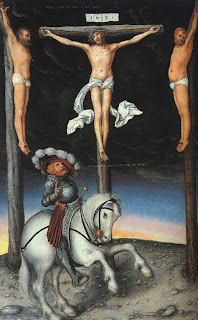But what crime has he committed?
Pilate asked. They shouted all the louder, ‘Crucify him!’ Pilate wanted to
please the crowd, so he set Barabbas free for them. Then he had Jesus whipped
and handed him over to be crucified. [GNB
Mark 15.14-15]
All in a day’s work for Pilate, it was. Not the crowd-pleasing, but
walking the political tightrope of excessive control and social disorder. I’m
writing this on a day when the BBC Breakfast News is discussing whether schools
in this country are agents of social engineering or simply of good,
old-fashioned learning, whatever that is.
Pilate was certainly afraid of riot, and so are we. And, fearing it, we
want to explain it, police it, punish it, restore order for those of us who
consider ourselves decent citizens. As if our citizenship stood separate from
the social construction in which we all live.
In Jesus’ case, he’s the pawn of a social construct which sweeps all
before it, the Pax Romana, the much
vaunted reason for the Roman Empire, its peace and order and well-oiled
military and economic machinery. What does one person count in that setting?
Not much at all, especially if he’s a Palestinian around whom there always
seems to be the whiff of trouble. Who can blame Pilate for that?
Yet we are offended that Jesus became a pawn of the games of others,
and so we should be. We must always be offended when systems are privileged
over people, outcomes over values, expediency over love. And as we are
offended, perhaps we need to be reminded that it’s all too easy for us, in the
little worlds that we inhabit, to make everything fit our systems, our
expediency, our outcomes. Those things that make life comfortable or maybe just
bearable, need to be set aside for the sake of the ‘other’, the one who doesn’t
count. We who inhabit the Kingdom of God need to learn to live in it especially
when it becomes uncomfortable, and when we are tempted back into the simpler,
broader path of worldly comfort.
Lord Jesus, you were condemned to
death for political expediency:
be with those who are imprisoned
for the convenience of the powerful.
You were the victim of unbridled
injustice:
change the minds and motivations of
oppressors and exploiters to your way of peace.
To you, Jesus, innocent though
condemned,
be honour and glory with the Father
and the Holy Spirit,
now and for ever.






